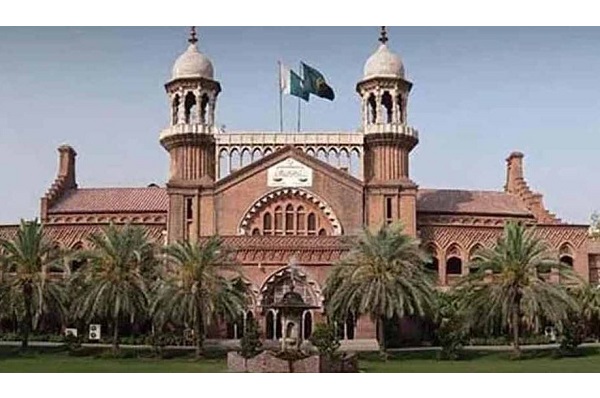KARACHI: Pakistan Stock Exchange above the 98,000 mark on Friday as share prices surged more than 2,000 points in intraday trade
LAHORE: The Lahore High Court on Friday ruled that any audio or video in the absence of its source or ownership cannot by any stretch of interpretation be taken as a piece of evidence for proceedings against an accused.
“The person against whom such audio and video is leaked is a victim, and not an accused,” Justice Shahid Jamil Khan observed while hearing a petition against airing of a video clip of an incident taken place in a private school involving physical torture on a girl student.
The judge had already ordered the Pakistan Electronic Media Regulatory Authority (Pemra) to restrain all television channels from airing the video.
Defence-A police station registered an FIR against four girls on the complaint of the victim’s father. The suspects — Jannat Malik and Kainat Malik (both sisters) and Umaima Qaiser — and the victim, Aleeha Imran, study at Scholar Dale, American International School, situated in Defence BB, Phase IV.
Umaima approached the high court against the airing of the video clip of the incident by news channels without hiding the faces of the minors.
During Friday’s hearing, Additional Attorney General Mirza Nasar Ahmad, assisted by Federal Investigation Agency (FIA) cybercrime Assistant Director Ms Rukhsana, sought more time to answer the court’s query about the agency’s capability to identify the original source of uploading an audio or video on social media.
Justice Khan observed that in case the FIA did not have the capability of identifying such person or source, the law officer shall apprise the court whether it was available internationally and explain why the federal government had not updated its capacity.
The judge said the infringement of the fundamental right of privacy by recording and uploading the audios and videos, was a multilayer proposition. He observed that there were a few basic questions whether any agency, federal or provincial, could be allowed to intrude and trespass the privacy for recording audios or videos.
He asked that even if, on the pretext of state security, an agency intruded into privacy, whether the material so collected can be used for any civil or criminal action under the law.
The judge wondered whether freedom of speech, being not an unqualified fundamental right, could be allowed to be exercised, when it infringed the unqualified fundamental rights of dignity and reputation.
Justice Khan ruled that the breach of privacy must be a felony (crime of higher degree) and making such material public should be intolerable by the state by invoking criminal laws, as well as by society, by resorting to civil laws for damages. He referred to Section 19 of the Prevention of Electronic Crimes Act (Peca) 2016, which deals with unauthorised interception with dishonest intention.
The judge said the phrase “with dishonest intention” should not stop the regulator from taking action, because in absence of source and legal purpose of using such material, dishonest intention was legally presumed and burden to prove otherwise shall be on the person committing such act.
He said the regulator has to take prompt action under the provisions of Section 19 and then ask for discharge of the burden of proof.
Justice Khan observed that in administration of justice, though electronic material was admissible as evidence, its standards were higher than the ordinarily documentary and oral evidence.
“For ordinarily documentary evidence, the court has to satisfy itself by examining the scribe and the person in possession of the document, otherwise such documentary evidence is not admissible,” the judge explained in his order.
The judge maintained: “The person who violates privacy of a citizen, if not proceeded against by any agency, the officer in charge of the agency should be taken to have connived with the offence and for such laps disciplinary proceedings should be initiated, followed by criminal proceedings, if so permissible under the law.”
With regard to the stay order against the video in question, the judge reiterated that the Pakistan Telecommunication Authority shall ensure criminal action if such material was uploaded on social media from the territory of Pakistan.
The judge said the violation shall be the contempt of the court’s order.
You May Also Like
TEHRAN: The head of Iran’s Revolutionary Guards described the arrest warrant issued by the International Criminal Court for Israeli Prime
LOWER KURRAM: The death toll in yesterday’s gun attack on passenger vans in Khyber Pakhtunkhwa’s Lower Kurram has risen to 42,






